大学英语二级写作教参PPT课件
- 格式:ppt
- 大小:84.00 KB
- 文档页数:27
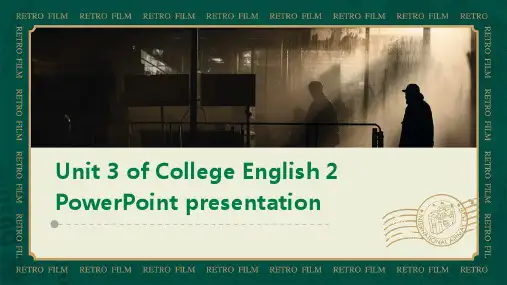
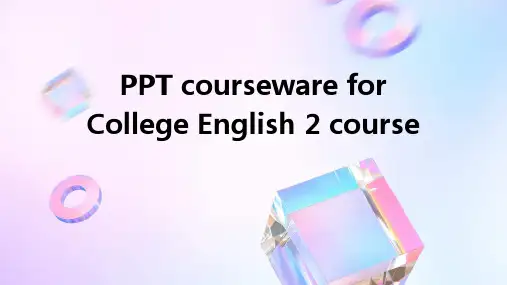
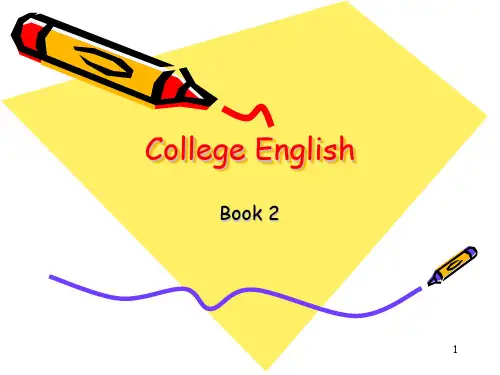
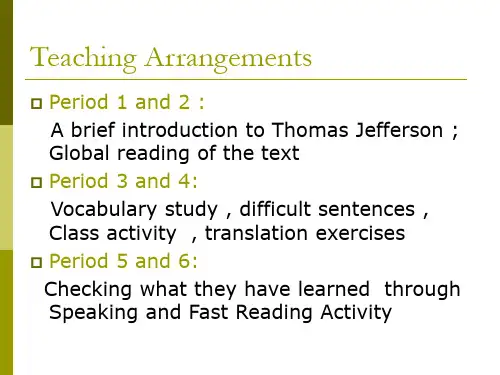
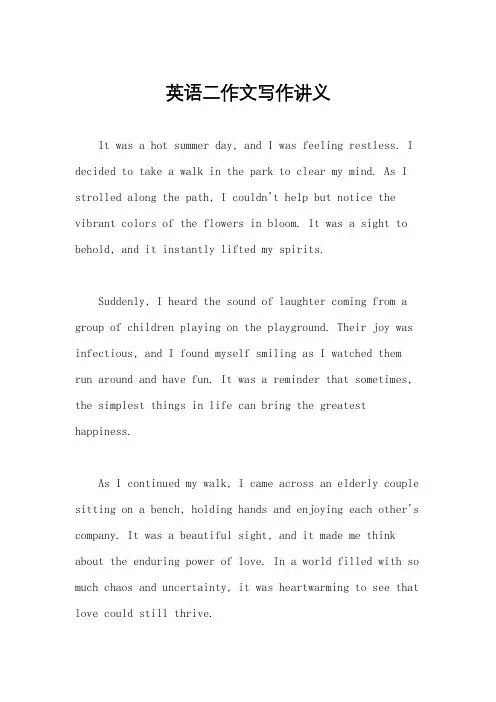
英语二作文写作讲义It was a hot summer day, and I was feeling restless. I decided to take a walk in the park to clear my mind. As I strolled along the path, I couldn't help but notice the vibrant colors of the flowers in bloom. It was a sight to behold, and it instantly lifted my spirits.Suddenly, I heard the sound of laughter coming from a group of children playing on the playground. Their joy was infectious, and I found myself smiling as I watched them run around and have fun. It was a reminder that sometimes, the simplest things in life can bring the greatest happiness.As I continued my walk, I came across an elderly couple sitting on a bench, holding hands and enjoying each other's company. It was a beautiful sight, and it made me think about the enduring power of love. In a world filled with so much chaos and uncertainty, it was heartwarming to see that love could still thrive.As I made my way back home, I couldn't help but feel a sense of gratitude for the little moments of joy that I had witnessed in the park. Sometimes, it's easy to get caught up in the hustle and bustle of everyday life and forget to appreciate the beauty that surrounds us. But on that day, I was reminded of the simple pleasures that make life truly meaningful.。
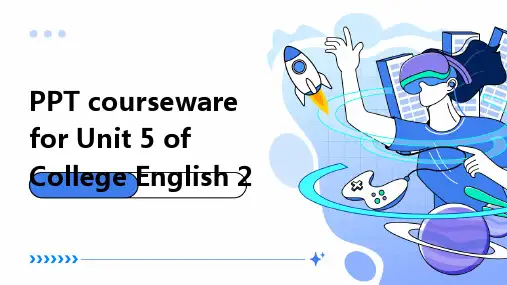
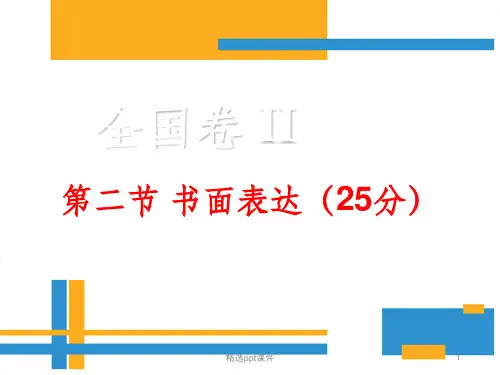
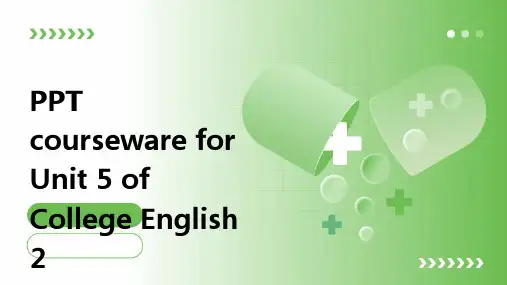
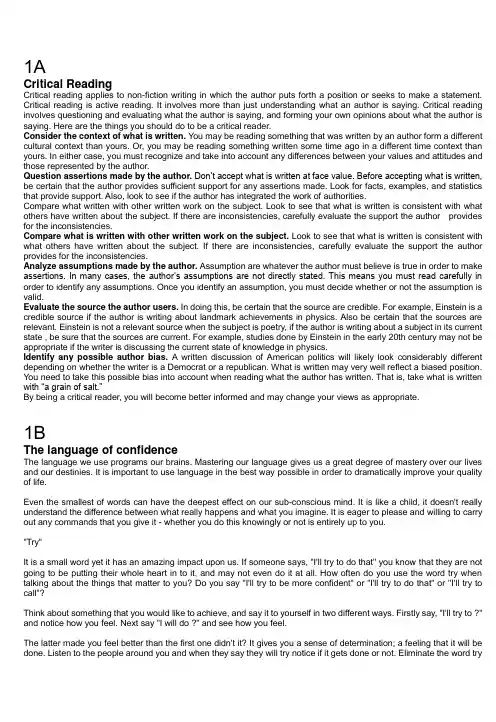
1ACritical ReadingCritical reading applies to non-fiction writing in which the author puts forth a position or seeks to make a statement. Critical reading is active reading. It involves more than just understanding what an author is saying. Critical reading involves questioning and evaluating what the author is saying, and forming your own opinions about what the author is saying. Here are the things you should do to be a critical reader.Consider the context of what is written. You may be reading something that was written by an author form a different cultural context than yours. Or, you may be reading something written some time ago in a different time context than yours. In either case, you must recognize and take into account any differences between your values and attitudes and those represented by the author.Question assertions made by the author.Don’t accept what is written at face value. Before accepting what is written, be certain that the author provides sufficient support for any assertions made. Look for facts, examples, and statistics that provide support. Also, look to see if the author has integrated the work of authorities.Compare what written with other written work on the subject. Look to see that what is written is consistent with what others have written about the subject. If there are inconsistencies, carefully evaluate the support the author provides for the inconsistencies.Compare what is written with other written work on the subject. Look to see that what is written is consistent with what others have written about the subject. If there are inconsistencies, carefully evaluate the support the author provides for the inconsistencies.Analyze assumptions made by the author. Assumption are whatever the author must believe is true in order to make assertions. In many cases, the author’s assumptions are not directly stated. This means you must read carefully in order to identify any assumptions. Once you identify an assumption, you must decide whether or not the assumption is valid.Evaluate the source the author users. In doing this, be certain that the source are credible. For example, Einstein is a credible source if the author is writing about landmark achievements in physics. Also be certain that the sources are relevant. Einstein is not a relevant source when the subject is poetry, if the author is writing about a subject in its current state , be sure that the sources are current. For example, studies done by Einstein in the early 20th century may not be appropriate if the writer is discussing the current state of knowledge in physics.Identify any possible author bias.A written discussion of American politics will likely look considerably different depending on whether the writer is a Democrat or a republican. What is written may very well reflect a biased position. You need to take this possible bias into account when reading what the author has written. That is, take what is written with ―a grain of salt.‖By being a critical reader, you will become better informed and may change your views as appropriate.1BThe language of confidenceThe language we use programs our brains. Mastering our language gives us a great degree of mastery over our lives and our destinies. It is important to use language in the best way possible in order to dramatically improve your quality of life.Even the smallest of words can have the deepest effect on our sub-conscious mind. It is like a child, it doesn't really understand the difference between what really happens and what you imagine. It is eager to please and willing to carry out any commands that you give it - whether you do this knowingly or not is entirely up to you."Try"It is a small word yet it has an amazing impact upon us. If someone says, "I'll try to do that" you know that they are not going to be putting their whole heart in to it, and may not even do it at all. How often do you use the word try when talking about the things that matter to you? Do you say "I'll try to be more confident" or "I'll try to do that" or "I'll try to call"?Think about something that you would like to achieve, and say it to yourself in two different ways. Firstly say, "I'll try to ?" and notice how you feel. Next say "I will do ?" and see how you feel.The latter made you feel better than the first one didn't it? It gives you a sense of determination; a feeling that it will be done. Listen to the people around you and when they say they will try notice if it gets done or not. Eliminate the word tryfrom your dictionary and see how your life improves."Can't"This is another small word with big impact. It dis-empowers us, makes us feel week and helpless, and damages our self-esteem. It limits our infinite abilities and stifles creativity. Rub it out from your internal dictionary and replace it with something that makes you feel great.Instead of saying you can't, why not say something like "I choose ?" or "I choose not to ?". Using words like this allows you to take back your power and to be in control of your life.Words may appear small and insignificant, yet they can have a deep and lasting effect on us. Mastering your language gives you the power to live whatever life you desire.What words do you use a lot that dis-empower you? Make a list of words you commonly use and then write next to them some alternatives you can use. Make these alternatives words that make you feel fabulous, not only about yourself, but about life and what you are doing!2ASpilt MilkHave you heard of the story - spilt milk? Well, we all know there is no use crying over spilt milk. But this story is different.I would hope all parents would respond in this manner.I recently heard a story about a famous research scientist who had made several very important medical breakthroughs. He was being interviewed by a newspaper reporter who asked him why he thought he was able to be so much more creative than the average person. What set him so far apart from others?He responded that, in his opinion, it all came from an experience with his mother that occurred when he was about two years old. He had been trying to remove a bottle of milk from the refrigerator when he lost his grip on the slippery bottle and it fell, spilling its contents all over the kitchen floor - a veritable sea of milk!When his mother came into the kitchen, instead of yelling at him, giving him a lecture, or punishing him, she said, "Robert, what a great and wonderful mess you have made! I have rarely seen such a huge puddle of milk. Well, the damage has already been done. Would you like to get down and play in the milk for a few minutes before we clean it up?"Indeed, he did. After a few minutes, his mother said, "You know, Robert, whenever you make a mess like this, eventually you have to clean it up and restore everything to its proper order. So, how would you like to do that? We could use a sponge, a towel, or a mop. Which do you prefer?" He chose the sponge and together they cleaned up the spilled milk.His mother then said, "You know, what we have here is a failed experiment in how to effectively carry a big milk bottle with two tiny hands. Let's go out in the back yard and fill the bottle with water and see if you can discover a way to carry it without dropping it." The little boy learned that if he grasped the bottle at the top near the lip with both hands, he could carry it without dropping it. What a wonderful lesson!This renowned scientist then remarked that it was at that moment that he knew he didn't need to be afraid to make mistakes.Instead, he learned that mistakes were just opportunities for learning something new, which is, after all, what scientific experiments are all about. Even if the experiment doesn't work,• we usually learn something valuable from it.Wouldn't it be great if all parents would respond the way Robert's mother responded to him?2BThe cakeCindy glanced nervously at the clock on the kitchen wall. Five minutes before midnight.―They should be home any time now,‖ she thought as she put the finishing touches on the chocolate cake she was frosting1 It was the first time in her 12 years she had tried to make a cake from scratch, and to be honest, it wasn’t exactly an aesthetic2 triumph. The cake was... well, lumpy3. And the frosting was bitter, as if she had run out of sugar or something. Which, of course, she had.The whole kitchen was a mess. Pans, bowls and other utensils4 were turned over, fell on the floor. The materials for making the cake, including flour, frosting and sugar,were scattered everywhere. The cream was also smeared everywhere, bits and pieces.But Cindy wasn’t thinking about the mess. She had created something, a veritable5 phoenix of flour and sugar rising out of the kitchen clutter. She was anxious for her parents to return home from their date so she could present her anniversary6 gift to them. She turned off the kitchen lights and waited excitedly in the darkness. When at last she saw the flash of the car headlights, she positioned herself in the kitchen doorway. By the time she heard the key sliding into the front door, she was THIS CLOSE to exploding.Her parents tried to slip in quietly, but Cindy would have none of that. She flipped7 on the lights dramatically and trumpeted8,―See!‖ She gestured grandly toward the kitchen table, where a slightly off-balance two-layer chocolate cake awaited their inspection.But her mother’s eyes never made it all the way to the table. ―Just look at this mess!‖ she moaned. ―How many times have I talked to you about cleaning up after yourself?‖―But Mom, I was only...‖―I should make you clean this up right now, but I’m too tired to stay up with you to make sure you get it done right,‖ her mother said. ―So you’ll do it first thing in the morning.‖―Honey,‖ Cindy’s father interjected gently, ―take a look at the table.‖―I know—it’s a mess,‖ his wife said coldly. ―The whole kitchen is a disaster. I can’t stand to look at it.‖ She stormed up the stairs and into her room, slamming the door shut behind her.For a few moments Cindy and her father stood silently, neither one knowing what to say. At last she looked up at him, her eyes moist and red. ―She never saw the cake,‖ she said.Unfortunately, Cindy’s mother isn’t the only parent who can’t see the details. Muddy shoes, lost lunch money and messy kitchens are really troublesome. But what’s a lit tle mud—even ona new carpet—compared to a child’sself-esteem? Is a lost dollar more valuable than a youngster’s emerging dignity? And while kitchen sanitation is important, is it worth the sacrifice of tender feelings and relationships?I’m not saying that our children don’t need to learn responsibility, or to occasionally suffer the painful consequences of their own bad choices. Those lessons are vital, and need to be carefully taught. But as parents, we must never forget that we’re not just teaching less ons—we’re teaching children. That means there are times when we really need to see the mess in the kitchen, and times when we only need to see the cake.3AReflections:friendship and loyaltyHow many of us recognize true loyalty in a friend? Loyalty consists of a friend, who will stick by you, though thick and thin. A friend who is always honest with you and never betrays the friendship with lies is a loyal friend. If you have a loyal friend, you have indeed found a true virtue in that friend. 我们中有多人能够结识真正忠诚的朋友?忠诚的朋友既是你遇到艰难险阻也会不离不弃。
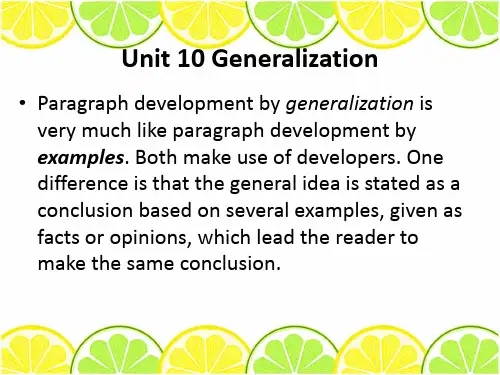
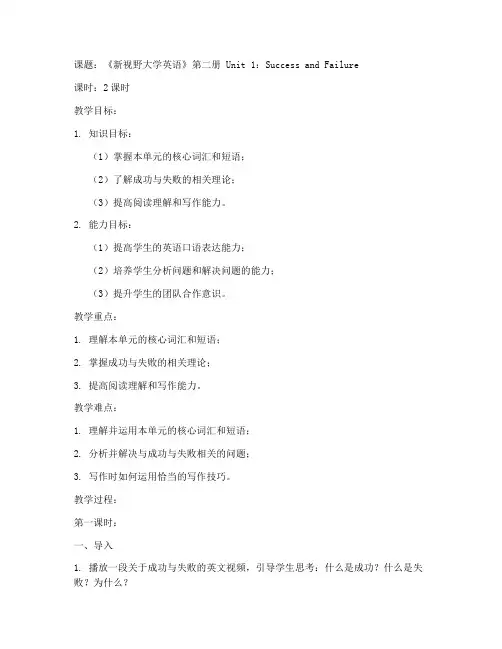
课题:《新视野大学英语》第二册 Unit 1:Success and Failure课时:2课时教学目标:1. 知识目标:(1)掌握本单元的核心词汇和短语;(2)了解成功与失败的相关理论;(3)提高阅读理解和写作能力。
2. 能力目标:(1)提高学生的英语口语表达能力;(2)培养学生分析问题和解决问题的能力;(3)提升学生的团队合作意识。
教学重点:1. 理解本单元的核心词汇和短语;2. 掌握成功与失败的相关理论;3. 提高阅读理解和写作能力。
教学难点:1. 理解并运用本单元的核心词汇和短语;2. 分析并解决与成功与失败相关的问题;3. 写作时如何运用恰当的写作技巧。
教学过程:第一课时:一、导入1. 播放一段关于成功与失败的英文视频,引导学生思考:什么是成功?什么是失败?为什么?二、新课导入1. 教师讲解本单元的核心词汇和短语,如:failure, success, determination, perseverance, etc.2. 分析本单元的文章结构,引导学生了解文章的主旨和论点。
三、阅读理解1. 学生阅读课文,完成课后练习题;2. 教师针对练习题进行讲解,帮助学生掌握阅读技巧。
四、口语练习1. 学生分组讨论:你认为成功与失败的区别是什么?2. 学生代表发言,分享自己的观点。
第二课时:一、复习导入1. 复习上一节课的核心词汇和短语;2. 回顾成功与失败的相关理论。
二、写作训练1. 教师讲解写作技巧,如:如何运用恰当的写作结构、如何运用过渡词等;2. 学生根据所学内容,完成一篇关于成功与失败的短文。
三、课堂展示1. 学生展示自己的短文,教师给予评价和指导;2. 学生互相评价,提出改进意见。
四、总结与作业布置1. 总结本单元的重点内容;2. 布置课后作业:阅读课文,思考以下问题:(1)成功与失败有什么关系?(2)如何面对失败?(3)如何实现成功?教学反思:本节课通过讲解、阅读、口语练习和写作训练等多种形式,帮助学生掌握本单元的核心词汇和短语,了解成功与失败的相关理论,提高阅读理解和写作能力。